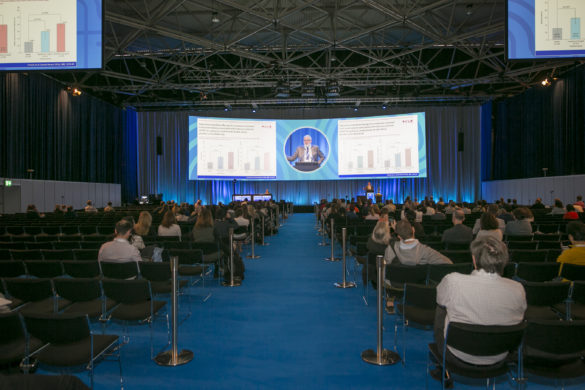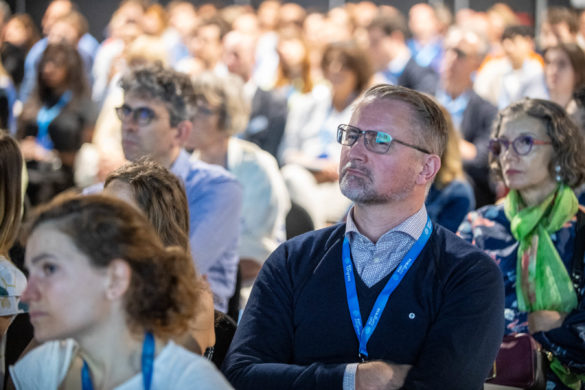by Francesco Iodice
This Special Time Zone Session on Latin American Dementia’ s Perspective was organised in collaboration with the Panamerican Federation of Neurological Societies and underlined the difficulties and possible clinical and research ideas that derive from the research study, clinical assessment and treatment of dementias in a particular setting such as Latin America. The event was coordinated by Prof. Renato Verdugo from the University of Desarrollo, Santiago, Chile.
Opening the session, Prof. Andrea Slachevsky from University of Chile, Santiago, gave a talk titled ‘Functional evaluation of dementias’. The lecture reviewed different tests useful to diagnose dementia, highlighting how some of the most used ones tend to underestimate the damage to frontal and temporal regions, and analyzed new methods developed by Slachevsky’s unit that can make it possible to perform broader diagnoses, differentiating apparently similar phenotypes and in settings that are not particularly easy.
In second talk, Prof. Ricardo Nitrini from the University of San Paulo, Brazil dealt with the ‘Diagnosis of dementia in low education populations’. The low education that characterises many countries of Latin America and other parts of the world has long been recognised as a modifiable risk factor for the development of overt dementia and, at the same time, shows important problems about a precise diagnosis. In people who cannot read, many of the main neuropsychological tests used for the diagnosis of dementia are not easily performed and run the risk of overestimating the state of mild cognitive impairment. Nitrini presented a test developed in his research unit, the Brief Cognitive Screening Battery, and demonstrated how this tool can be compared in efficacy to those provided by the main diagnostic tests in use.
Closing out the session Prof. Francisco Javier Lopera from the University of Antioquia, Colombia spoke about ‘Genetic of dementias’, showing how it is already known that genetic factors can increase or reduce the risk of developing dementia, and Alzheimer’s disease in particular, and how different forms of dementia are directly linked to alterations of single genes, and explained how the study of these family groups can derive very precious useful information to understand the onset and propagation mechanism of the neurodegenerative process.











